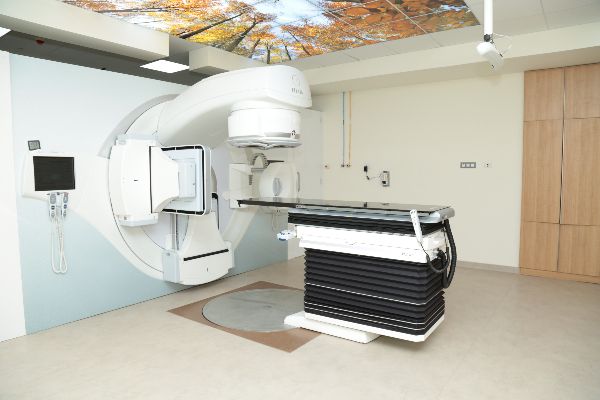Cytecare collaborates with Brains to offer radio surgery treatment at Neuro-Oncology Centre, Bengaluru
Under the guidance of neurosurgeon, Dr Venkataramana, Cytecare and Brains will now provide Stereotactic Radio Surgery (SRS) at the centre
Cytecare Cancer Hospital and Brains Neuro Spine Centre launched a world-class Neuro-Onco Centre at Cytecare Cancer Hospital, Bengaluru, recently. Under the guidance of neurosurgeon, Dr Venkataramana, Cytecare and Brains will now provide Stereotactic Radio Surgery (SRS) at the centre.
Stereotactic Radiosurgery (SRS) is an exceptional form of radiation treatment. It is not a surgery; it does not involve incision or blood, it is a painless and non-invasive procedure. A ray is focused on the centre of the tumour without affecting the other parts of the brain. Radio Surgery involves Stereotactic principle to calculate the size, volume of the tumour, outlines the configuration of the tumour and identifies the vital structures surrounding the tumour. It also helps in identifying the radiation sensitive organs which will be marked for the treatment planning.
Dr NK Venkataramana, Senior Consultant Neuro-Oncology, Cytecare and Founder & Chief Neurosurgeon, BRAINS said, “Radiation oncology has undergone immense changes over the years. With the development of technology in Radio Surgery, we are able to treat the tumour without affecting the other normal tissues and blood vessels of the brain.”
“Though, the only limitation is the size of the tumour which should be less than cms. It can even treat multiple tumours if they are within the size limits at different locations in the brain. This treatment is a day care procedure and the entire dose is calculated and delivered in minutes. We use very high-end stereotactic radiosurgery machine, which is fast, safe and precise”, he added.
Suresh Ramu, CEO Cytecare Cancer Hospitals, said, “Our focus is towards fighting the disease the right way and improving patient’s quality of life. We are zealous to offer this advanced radiation oncology treatment or Radio Surgery at our hospital, which helps our patients lead a better life”.
Using the data derived from MR imaging, the total dose required to control this tumour is calculated and delivered by a team of neurosurgeons, radiotherapists, radiation physicists and at times an anaesthetist. The most important aspect is that the entire dosage can be carried to the tumour in a single day and the treatment gets over in a few minutes.
At times the tumours can be located in a very critical area, where the same dose can be fragmented into portions, ranging from five to seven which shall be given within five to seven days. This technique is called stereotactic fractionated radiotherapy. In addition to the tumours, arteriovenous malformations (AVM’s) can be treated and today the stereotactic radiosurgery (SRS) is the gold standard treatment for AVM of the brain.
Post-treatment follow-up is essential to monitor the response and also the regression. The growth of a tumour will stop immediately and gradually regress in three years depending upon the size. Hence, it’s important to repeat the MRI every six months.
This process is totally safe for pediatric oncology as well as for the elderly. It is prescribable for children above five years, for elderly people with co-morbidities who are not fit for open surgery, as well as patients with recurrent tumours after their primary surgery.
- Advertisement -



Comments are closed.